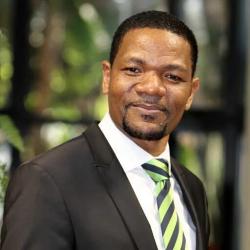I am a passionate advocate of the role of young people, students and university researchers in tackling climate change. I’ve written of the need for young people to “study to leave school with a mindset to be creators of alternative, competitive low carbon solutions for the mainstream economy.” This is why I am optimistic about what is happening, and I do see this translating into economic opportunities for sustainable or low-carbon ideas.
As this African proverb puts it, “you have little power over what’s not yours” is where we need to start. There is consensus in the economics world that human capital – the totality of skills, talents, energy, abilities, a person or group of people- is up to 4 times the value of produced capital and 15 times the value of natural resources capital. Human capital is the foundation of knowledge economies at the epitome of the globe. For Africa as the most youthful continent, with up to 60% of the population below the 30s, this can only mean good news. My optimism draws from knowing that Africa has the sovereign capital to ascend to the epitome through the low carbon pathway in these youth.
The big question is how to unleash this capital – these youth need a mindset change from being entitled to jobs to seeing themselves as the ones upon whom the task to build competitive African economies that will generate the jobs for future generations has fallen upon. And through Innovative Volunteerism, which we have created, we now have the biggest ever mindset change virtual incubation, mentoring and coaching space for young people to learn and turn ideas passions into profits as they grow climate action solutions. With this mentorship tool, young people are structurally guided and inspired to use what they have, which is their skills and ongoing work, improve, refine, and adapt it to deliver climate action solutions that offer viable alternatives demand areas to the community.
For example, waste recovery to clean energy cooking solutions are coming up as a critical area. With skills learned through the internet, youth work with the community to convert their agricultural waste into clean cooking briquettes. And by so doing, they are tapping into providing a sustainable alternative to charcoal, a solution that is up to 2 times cheaper. They are tapping into a sector valued at $20billion, averting deforestation to maintain forest sinks, and averting indoor pollution responsible for up to 600,000 deaths each year. They are venturing into making biofertilizers from waste, an area that is generating over 500% profitability. So a mindset change among the youth, to invest their time to learn a skill, even free online, and apply it to offer more affordable, environmentally sustainable alternative solutions in an enterprising approach to on-demand areas in communities is making me optimistic.
I’ve argued forcefully that climate action won’t come about through policy and regulation alone but economic opportunities, innovation and enterprise. This is why I say this. Because Africa does not lack in the policy per se. As we speak today, the African region is outstanding for having the highest number of Nationally Determined Contribution (NDC) ratifications. 52 out of 54 countries have ratified, making Africa among the regions with the highest in compliance. These NDCs balance both low carbon mitigation commitments and adaptation commitments that leverage nature-based solutions.
Climate change policies exist in one form or another in nearly every country. Other enabling sectoral policies, such as feed-in tariffs aimed to attract investment in clean, renewable energy, of climate-smart agriculture policies are commonplace in most countries. So, my point – Africa is not wanting in policy provisions for a low- emissions, climate-resilient development pathway. The big gap is in implementation.
And how do we close this gap?
Three fundamentals. First, regulation must be accompanied by incentives. Second, incentives must be informed by what has been proven to work on the ground. They need a “proof of concept” that climate action creates value in the mainstream of economic activities. Third, to generate this “proof of concept”, it is incumbent upon non-state actors, including individual citizens and the youth, to leverage whatever little or much of enabling policy, act on it, generate results that can then lay an objective basis for targeted incentives.
A typical example here can shed more light. Through Innovative Volunteerism, we have been structurally guiding youth to retool their skills, develop solar dryers and work with smallholder farmers that produce up to 80% of food in Africa to decentralize these dryers to the farmers and enable them to add value and preserve their harvest. The application of these dryers generates data that proves their effectiveness and efficiency in allowing agro-stakeholders to comply with food safety and hygiene standards by effectively and efficiently ensuring food dehydration to below 10% as stipulated in national standards towards preventing aflatoxins, growth of mold and fungus while ensuring hygiene.
National standards bodies took up this data on effectiveness, which integrated solar dryers as affordable tools for driving compliance to food safety health by ensuring optimal moisture content for long-term preservation and hygiene standards. Because of this integration, any actor who needs to implement food safety, moisture content, and hygiene standards needs to apply solar dryers as a tool for achieving compliance. And this is generating a market for these dryers and creating market enterprise opportunities for youth involved in developing these climate action solutions. And those using the dryers also achieve compliance cut their losses, and preserve their food to enhance their incomes. This is a direct market incentive to enhance market investment and uptake of climate action solutions of solar dryers.
Another dimension is that this data also shows how the application of solar dryers is driving value addition to cut post-harvest losses and enhance farmer incomes as called for by climate-smart agriculture policies. Farmers have reversed losses and enhanced earnings by up to 30times. This data provides an objective basis, a further “proof of concept” for more targeted incentives towards enabling youth to invest more in these solar dryers. As an example, this data can be taken up to inform policy incentives such as zero-rating tax for solar dryer material and components tax breaks for youth engaging in developing these solar dryer solutions. The bottom-line effect is to create market incentives that enable more youth to afford developing these solar dryers and create income opportunities for themselves while driving upscaling climate actions.
So yes, climate action will not be enhanced by policy alone but by incentives that require “proof of concept” of their impact on mainstream economic activities.
We need to promote the idea of deliberative democracy in driving action on climate change.
The importance of deliberative democracy in decision making to deliver better policies, strengthen democracy, and build trust are crucial in driving climate action. The study bolsters our understanding: we do not do development for people, but rather, people do development for themselves. They often need facilitation for them to build shared responsibility, which ensures outcomes of processes to ‘stick’ and be sustainable. We are fostering meaningful deliberative democracy on closing the gap between policy & meaningful implementation by engaging citizens and non-state actors who understand the context and know their problems to identify the gaps needed as we guide them to fill these gaps. Through these approaches, the informal sector and youth build shared responsibility and own processes and outcomes for climate action solutions that provide data to inform more targeted incentives to enhance policy implementation.
We must all take Values Based leadership. Exercise selflessness and leverage the existing enabling environment to apply climate actions from solutions and enterprising lens that proves its viability in generating solutions that lift millions from the bottom of the pyramid.
Dr. Richard Munang is currently the Africa Regional Climate Change Coordinator at the UN Environment Programme (UNEP). He is responsible for guiding the implementation of UNEP’s climate-resilient development strategy at national and regional levels to ensure human well-being through coordinating the implementation of diverse projects in adaptation and mitigation. He is also the Acting Deputy Director of UNEP Africa Office, and he supervises the delivery of all the organisation’s programmes and projects in Africa.
Dr. Munang experience encompasses a unique blend in programming and policy on regional and global issues of climate change policy, environmental management and governance, sustainable development, clean energy, resource efficiency and food security from the lens of accelerated economic growth. His professional activities include supporting governments, regional institutions and non-state actors with green growth and low-carbon transition and participatory engagement of multiple stakeholders, including the private sector, youth, women and minority groups.
He has been involved in enhancing skills retooling of youth through a mentorship tool he founded called Innovative volunteerism, an innovative structured approach to guide and inspire youth to turn their passion into profits through driving climate action enterprises. He has won many awards, including- Africa Green Champion Award 2020, African Environmental Hero Award 2016, UNEP 2016 highest recognition Baobab award for Programme Innovation.
With rich knowledge, diversified experience, policy formulation, and sustainability of projects, Dr. Munang has led research programmes and guided several publications to inform Climate Change and development policies at both global and regional levels. He has participated in a wide variety of research projects and has published over 500 articles in international peer-reviewed journals and magazines. Dr. Munang is the author of the book– Making Africa work through the Power of Innovative Volunteerism
Dr. Munang holds a Doctor of Philosophy (PhD) degree in Environmental Change and Policy from the University of Nottingham, United Kingdom and an Executive Certificate in Climate Change and Energy Policy from Harvard University Kennedy School of Government.







